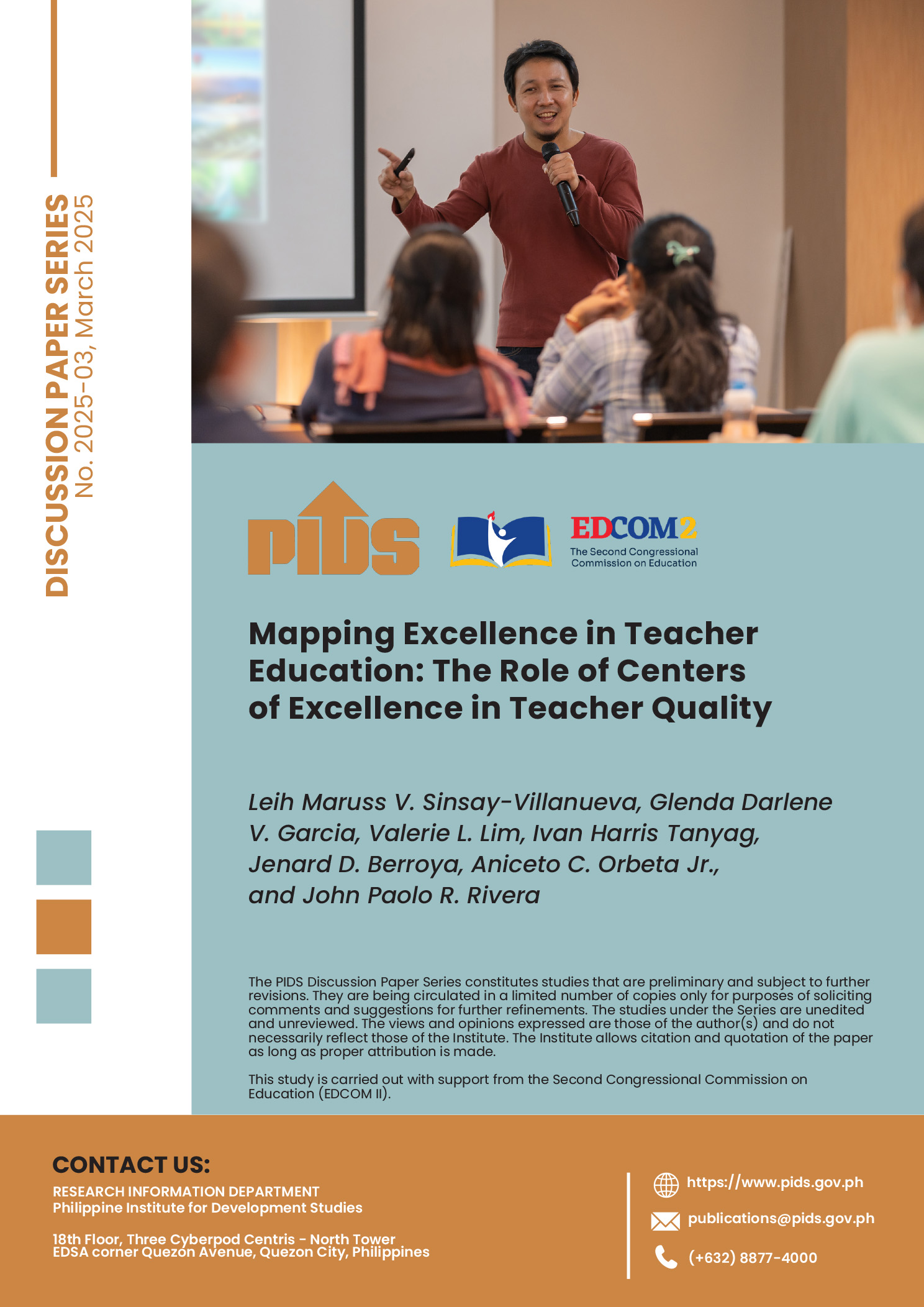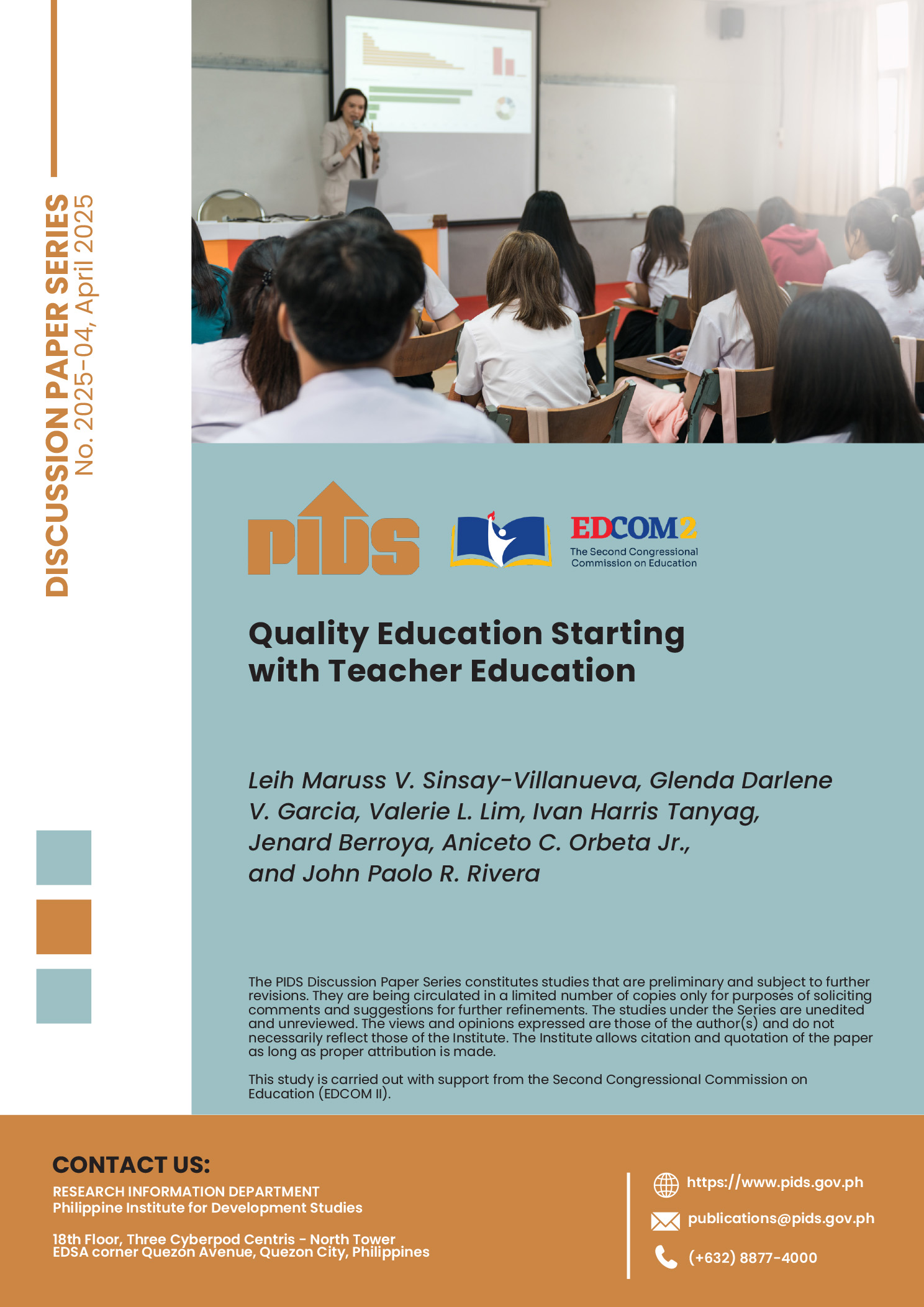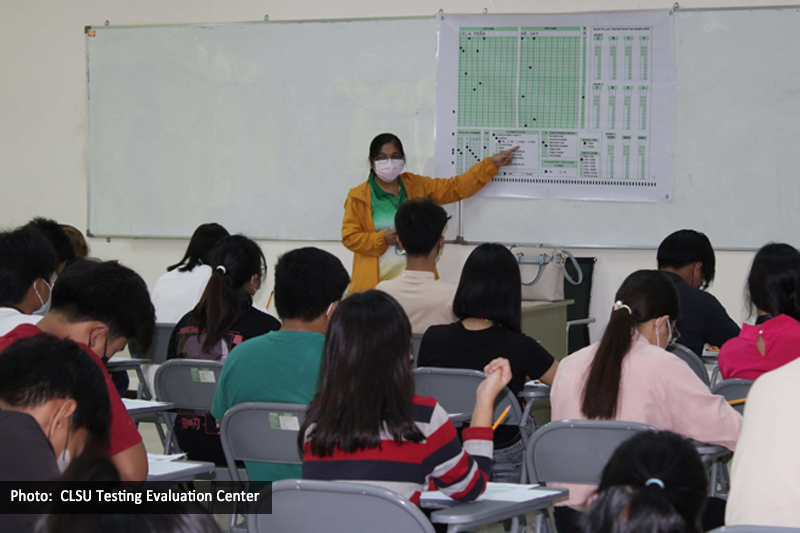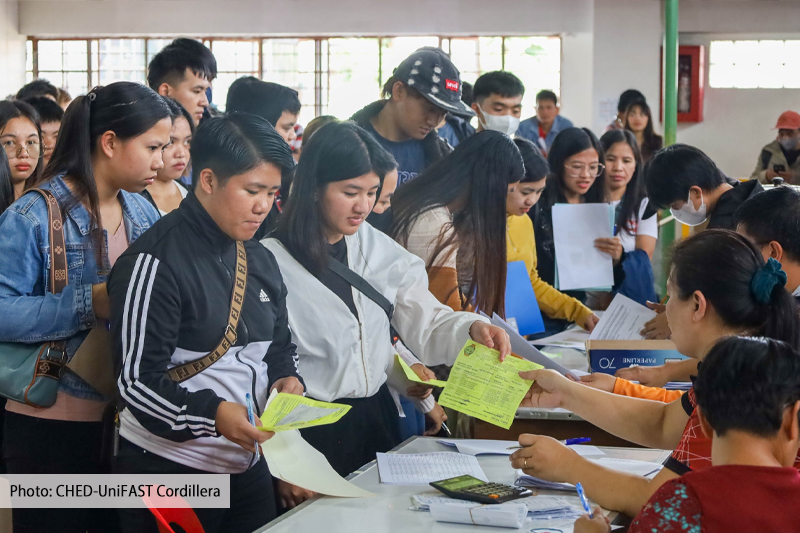1 THE TAX BILL.
This comprehensive tax reform legislation is critical for a sustainable macro situation, addressing pressing infrastructure constraints, and for needed social spending. This will spell the difference between our muddling through at the historic 4%-5% GDP growth average, and the 7% more inclusive growth with low unemployment and underemployment that the country needs to bring so many of our people out of poverty.
The first package of this reform bill, that includes the increase in fuel excises hand in hand with lower personal income taxes for the less well off, is now being deliberated in Congress. I noticed that compromises have already been accommodated in the revised bill for greater political palatability (e.g. deletion of the scrapping of VAT exemptions for seniors, staggering of the fuel tax in three stages, a higher top marginal income tax rate).
One hopes that this revised bill will pass by mid year.
Its early passage will yield a major boost to the credibility of the administration, and its ten-point economic agenda. This is much needed at this time as the investment climate has suffered from policy drift or confusion in important areas -- conversion of agricultural lands, mining, labor contracting (endo).
There were also setbacks in peace and security front with the Korean businessman’s murder under police custody precipitating the President’s own dismay with our entire police system, and the collapse of talks with the communists.
Finally, the slow progress on DoTr concerns (e.g. lack of decision on a second airport, congressional intervention on the common mass transport station, inability to secure so called “emergency powers” for the traffic crisis). Even the apparently simple delivery on drivers’ licenses and car plates stalled.
The moment of truth has arrived.
We in the Foundation for Economic Freedom (FEF) asked Finance Secretary Carlos Dominguez III when we had him as our speaker last month for President Duterte to now invest his substantial (but based on history, inevitably eroding) political capital on this. Former Finance Sec. Gary Teves, then a Congressman during the administration of President Ramos, urged weekly LEDAC meetings on this until the law is passed.
2 FREE TUITION IN STATE UNIVERSITIES AND COLLEGES (SUCS).
Our Foundation for Economic Freedom (FEF) issued a statement questioning the wisdom of this based on a study by FEF and Philippine Institute for Development Studies Fellows Dr. Aniceto Orbeta and Dr. Vicente Paqueo. From us who passionately believe that good intentions are not enough, they must be matched by the right instruments.
The Secretaries of Finance, Budget, and Socioeconomic Planning likewise adopted this position in a memorandum to the President and Cabinet.
As argued by Drs. Orbeta and Paqueo, tuition in SUCs only comprises a third of the college costs. Such partial financing, “is anti-poor” since only those who have the resources to pay the rest of the costs will avail of the subsidy. They also showed that most of those who are enrolled in the SUCs come from higher income groups. Those from bottom 20% comprise only 12% of the student population.
They expressed concern that free tuition in SUCs will have the following effects:
a) trigger an exodus of students towards SUCs, exacerbating the lopsided benefits in favor of the relatively well off; b) impact the quality of instruction in the SUCs as they are flooded with new enrollees. The national government will thus be saddled with trying to address this, will then transfer the burden of educating the relatively well off to the public, in a regressive way.
They propose instead that the government fully fund the Unified Student Financial Assistance for Tertiary Education (UniFAST) law, which was enacted in 2015. The UniFAST unifies all modalities of publicly funded Student Financial Assistance Programs -- scholarships, grants in aid and student loans for tertiary education. It does so without a bias for SUCs, and empowers the students to choose where they wish to study. (There are places where there are no SUCs.)
Shouldn’t public moneys be more prudently used supporting the poor students in accordance with their needs, and empowering them to choose where they wish to study, instead of just be limited to SUCs? Many of SUCs are politicized, wasteful, and poorly run based on CHED and board examination records. Let’s support students, not suckers.
3 A DIGITAL NATION.
I had the privilege of listening to Secretary Rodolfo Salalima at the Wallace Business Forum speak on his vision for the Dept. of Information and Communication Technology (DICT). This is an agency Peter Wallace advocated vigorously to be established.
It is serendipitous for the President (and the public) that he had someone like Secretary Salalima as among the stellar graduates of his San Beda law class. Besides being a bar topnotcher, he is one of the pioneers in the industry, with involvement dating back to the 1990s -- the establishment of SkyCable, Smart Communications, then Globe Telecommunications.
He gave us an outline of the vision and challenges of his department which he said will consult all stakeholders, especially consumers, in a Telecom Summit in March.
Among the elements in DICT’s program are:
a) a “National Government Portal,” a one-stop gateway to whatever you need from government, b) a government common platform as a common repository of data and information, c) a national broadband strategy.
On the last item, I had just received notice from the SSRN, a multidisciplinary online repository of scholarly research (ssrn.com) of a most relevant industry study done by UP Professor Emeritus Epictetus Patalinghug, et al. The study -- Assessment of the Structure, Conduct, and Performance of the Philippine Telecommunications Industry can be read by visiting the link http://bit.ly/telcostudy.
The study done with 3 other professors from UP, AIM, and Southern Connecticut State University provides objective and deep analysis on the following subjects: market and competitive analysis, spectrum management, and broadband policy. It’s a must-read for people who are serious about understanding the industry and earnestly looking for solutions to improve broadband service in the Philippines moving forward, a collaborative mission for government and its various units, and the private sector.
From my quick read, it confirms what I know as a Globe Board director that the present two-player structure is fiercely competitive. That the rate of change of average Internet connection speed is increasing and the gap will soon be bridged by new investment in network facilities. And that the only realistic third player is the government, which must build a “last mile” network that is not financially viable for private operators to build.
Next month, there will be a Telecom conference. We all look forward to listening to Secretary Salalima on his, and other stakeholders -- especially consumers -- take on this academic research.
Romeo L. Bernardo is a board director of the Institute for Development and Econometric Analysis. He was undersecretary of Finance during Corazon Aquino and Fidel Ramos administrations.
This comprehensive tax reform legislation is critical for a sustainable macro situation, addressing pressing infrastructure constraints, and for needed social spending. This will spell the difference between our muddling through at the historic 4%-5% GDP growth average, and the 7% more inclusive growth with low unemployment and underemployment that the country needs to bring so many of our people out of poverty.
The first package of this reform bill, that includes the increase in fuel excises hand in hand with lower personal income taxes for the less well off, is now being deliberated in Congress. I noticed that compromises have already been accommodated in the revised bill for greater political palatability (e.g. deletion of the scrapping of VAT exemptions for seniors, staggering of the fuel tax in three stages, a higher top marginal income tax rate).
One hopes that this revised bill will pass by mid year.
Its early passage will yield a major boost to the credibility of the administration, and its ten-point economic agenda. This is much needed at this time as the investment climate has suffered from policy drift or confusion in important areas -- conversion of agricultural lands, mining, labor contracting (endo).
There were also setbacks in peace and security front with the Korean businessman’s murder under police custody precipitating the President’s own dismay with our entire police system, and the collapse of talks with the communists.
Finally, the slow progress on DoTr concerns (e.g. lack of decision on a second airport, congressional intervention on the common mass transport station, inability to secure so called “emergency powers” for the traffic crisis). Even the apparently simple delivery on drivers’ licenses and car plates stalled.
The moment of truth has arrived.
We in the Foundation for Economic Freedom (FEF) asked Finance Secretary Carlos Dominguez III when we had him as our speaker last month for President Duterte to now invest his substantial (but based on history, inevitably eroding) political capital on this. Former Finance Sec. Gary Teves, then a Congressman during the administration of President Ramos, urged weekly LEDAC meetings on this until the law is passed.
2 FREE TUITION IN STATE UNIVERSITIES AND COLLEGES (SUCS).
Our Foundation for Economic Freedom (FEF) issued a statement questioning the wisdom of this based on a study by FEF and Philippine Institute for Development Studies Fellows Dr. Aniceto Orbeta and Dr. Vicente Paqueo. From us who passionately believe that good intentions are not enough, they must be matched by the right instruments.
The Secretaries of Finance, Budget, and Socioeconomic Planning likewise adopted this position in a memorandum to the President and Cabinet.
As argued by Drs. Orbeta and Paqueo, tuition in SUCs only comprises a third of the college costs. Such partial financing, “is anti-poor” since only those who have the resources to pay the rest of the costs will avail of the subsidy. They also showed that most of those who are enrolled in the SUCs come from higher income groups. Those from bottom 20% comprise only 12% of the student population.
They expressed concern that free tuition in SUCs will have the following effects:
a) trigger an exodus of students towards SUCs, exacerbating the lopsided benefits in favor of the relatively well off; b) impact the quality of instruction in the SUCs as they are flooded with new enrollees. The national government will thus be saddled with trying to address this, will then transfer the burden of educating the relatively well off to the public, in a regressive way.
They propose instead that the government fully fund the Unified Student Financial Assistance for Tertiary Education (UniFAST) law, which was enacted in 2015. The UniFAST unifies all modalities of publicly funded Student Financial Assistance Programs -- scholarships, grants in aid and student loans for tertiary education. It does so without a bias for SUCs, and empowers the students to choose where they wish to study. (There are places where there are no SUCs.)
Shouldn’t public moneys be more prudently used supporting the poor students in accordance with their needs, and empowering them to choose where they wish to study, instead of just be limited to SUCs? Many of SUCs are politicized, wasteful, and poorly run based on CHED and board examination records. Let’s support students, not suckers.
3 A DIGITAL NATION.
I had the privilege of listening to Secretary Rodolfo Salalima at the Wallace Business Forum speak on his vision for the Dept. of Information and Communication Technology (DICT). This is an agency Peter Wallace advocated vigorously to be established.
It is serendipitous for the President (and the public) that he had someone like Secretary Salalima as among the stellar graduates of his San Beda law class. Besides being a bar topnotcher, he is one of the pioneers in the industry, with involvement dating back to the 1990s -- the establishment of SkyCable, Smart Communications, then Globe Telecommunications.
He gave us an outline of the vision and challenges of his department which he said will consult all stakeholders, especially consumers, in a Telecom Summit in March.
Among the elements in DICT’s program are:
a) a “National Government Portal,” a one-stop gateway to whatever you need from government, b) a government common platform as a common repository of data and information, c) a national broadband strategy.
On the last item, I had just received notice from the SSRN, a multidisciplinary online repository of scholarly research (ssrn.com) of a most relevant industry study done by UP Professor Emeritus Epictetus Patalinghug, et al. The study -- Assessment of the Structure, Conduct, and Performance of the Philippine Telecommunications Industry can be read by visiting the link http://bit.ly/telcostudy.
The study done with 3 other professors from UP, AIM, and Southern Connecticut State University provides objective and deep analysis on the following subjects: market and competitive analysis, spectrum management, and broadband policy. It’s a must-read for people who are serious about understanding the industry and earnestly looking for solutions to improve broadband service in the Philippines moving forward, a collaborative mission for government and its various units, and the private sector.
From my quick read, it confirms what I know as a Globe Board director that the present two-player structure is fiercely competitive. That the rate of change of average Internet connection speed is increasing and the gap will soon be bridged by new investment in network facilities. And that the only realistic third player is the government, which must build a “last mile” network that is not financially viable for private operators to build.
Next month, there will be a Telecom conference. We all look forward to listening to Secretary Salalima on his, and other stakeholders -- especially consumers -- take on this academic research.
Romeo L. Bernardo is a board director of the Institute for Development and Econometric Analysis. He was undersecretary of Finance during Corazon Aquino and Fidel Ramos administrations.












